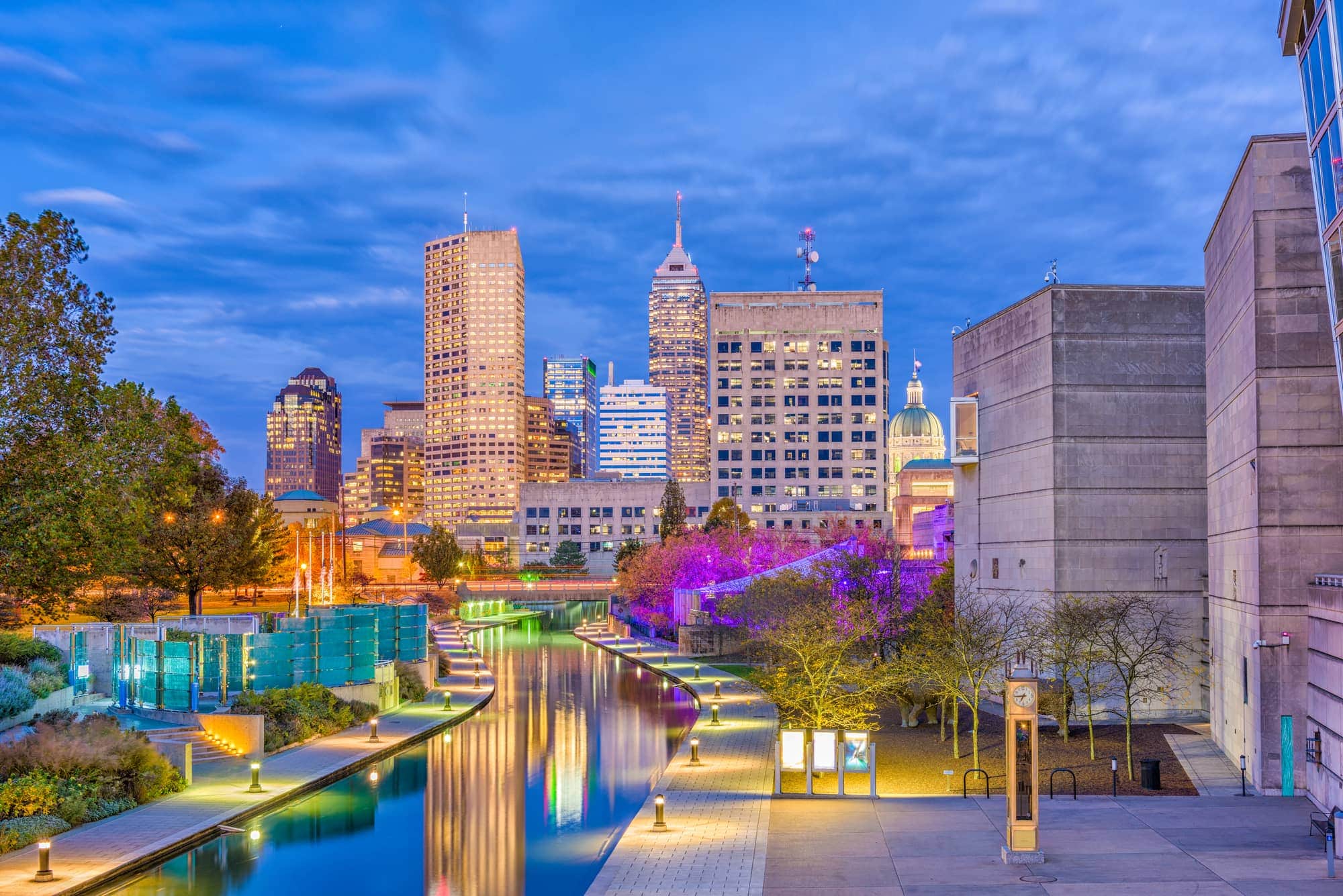Are you considering a move to Indianapolis? This bustling city in the heart of Indiana has plenty to offer, from a thriving arts and culture scene to a diverse array of suburbs and neighborhoods to suit any lifestyle.
We’ve assembled a list of all the facts you need to know about Indianapolis to help you make a smooth transition. So before you start packing your bags, read on to discover what you need to know before making the move to Indianapolis.
Indianapolis at a Glance
Indianapolis, commonly known as Indy, is the capital and largest city of Indiana in the Midwestern region of the United States. With a population of approximately 800K people, it’s the 16th most populous city in the United States.
The city covers an area of about 372 square miles (963 square kilometers) and is the 3rd largest of the Midwestern cities after Chicago and Detroit.
It is diverse and vibrant, boasting a rich history, a thriving arts and culture scene, lots of green spaces, some of the largest parks in the state, and a strong sports culture. It is home to various unique neighborhoods as well.
Indianapolis Real Estate Market
The Indianapolis homes for sale are highly diverse, ranging from historic properties with charming architecture to modern, newly-built homes. The median home price in Indianapolis is around $200K, and the average rent for an apartment is $1,155, which are both lower than the national average.
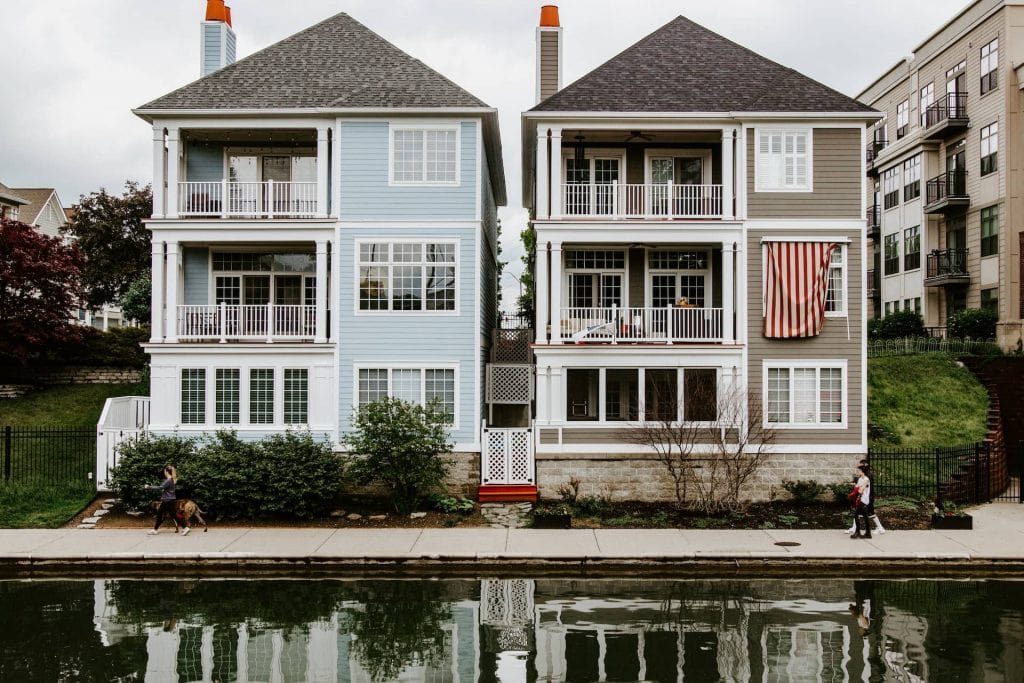
However, prices vary greatly depending on the neighborhood and type of property. Condos in Indianapolis high-rise buildings and townhomes tend to be more affordable, while single-family homes in highly sought-after neighborhoods can fetch a premium. Coworking spaces are also on the expensive side. Some of the most desirable Indianapolis neighborhoods include:
- Broad Ripple
- Meridian-Kessler
- Irvington
Cost of Living in Indianapolis
Indianapolis has a relatively low cost of living compared to other major cities in the USA. The housing costs, cost of utilities, and transportation are all below the national average. The median household income is around $57,000, slightly below the national median.
As for specific living costs, Indianapolis is notably cheaper than the state of Indiana. For example, the cost of groceries in Indianapolis is about 2% lower than the state average.
Rental prices and mortgage rates are also relatively low, though still higher than in other towns in Indiana. However, certain expenses such as dining out and entertainment can be slightly more expensive than the state average.
Schools in Indianapolis
The Indianapolis area offers a vast array of educational options for students of all ages. There are many public, private, and parochial school systems, and there’s no shortage of elementary schools, high schools, or middle schools.
The Indianapolis Public Schools (IPS) district is one of the best school districts in the state and serves over 30,000 students across 70 schools. A variety of public charter schools and magnet schools are available, offering specialized programs and curriculums.
Indianapolis is also home to several colleges and universities. These include Indiana University-Purdue University Indianapolis (IUPUI), Butler University, Marian University, and the University of Indianapolis.
These colleges and universities offer a range of programs in fields such as business, healthcare, and the arts, and are well-respected both locally and nationally.
Economy in Indianapolis
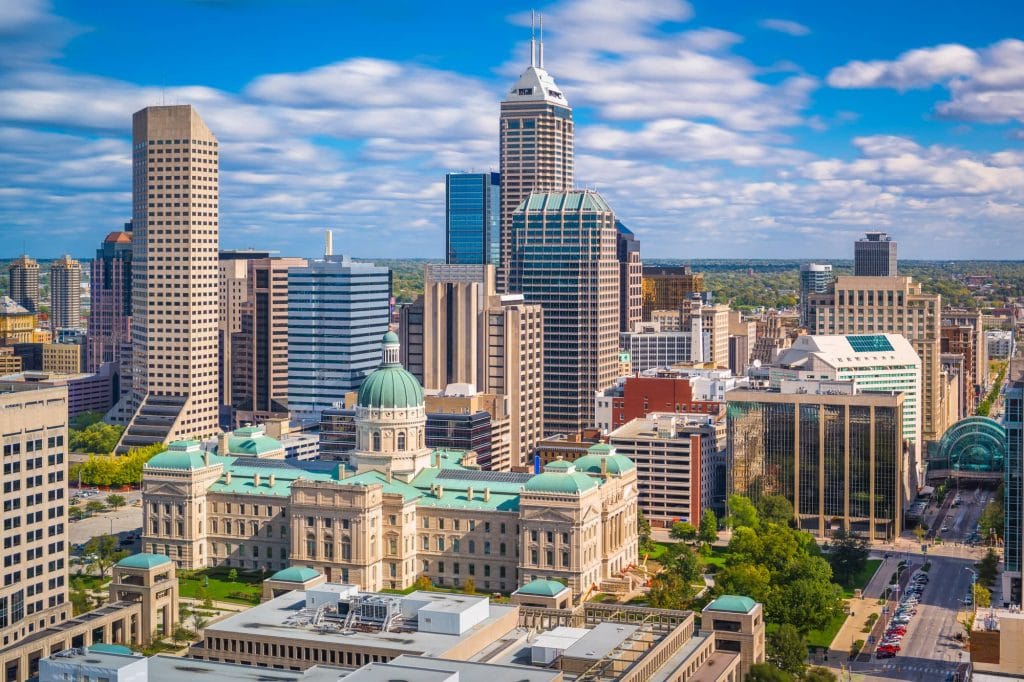
Indianapolis’ economy is diverse and robust, with many industries and national companies ensuring numerous job opportunities and a low unemployment rate.
The city has many large employers, including Eli Lilly and Company, Cummins Inc., Rolls-Royce, Salesforce, Infosys, and Indiana University Health. This means there’s ample opportunity for career growth.
Manufacturing is a particularly critical industry in Indianapolis, with several major automotive and aerospace companies having a significant presence and offering numerous employment opportunities.
The healthcare industry is also a major employer, with many large hospital systems and medical centers throughout the city. The technology sector is growing rapidly, with several startups and established tech companies establishing offices in Indianapolis in recent years.
Indianapolis Trademarks
Indianapolis is known for many things, including its famous auto race, the Indy 500, and its vibrant arts and culture scene.
The city is also home to several iconic landmarks and sports teams. These trademarks give it a unique identity and contribute to the quality of life for its residents and visitors.
The Crossroads of America
Indianapolis is known as the “Crossroads of America” due to its central location and easy access to major interstates and highways.
It is located at the intersection of several major highways, including Interstate 65, Interstate 70, and Interstate 74, making it a convenient starting point for road trips and travel throughout the Midwest.
Additionally, Indianapolis is home to the Indianapolis International Airport, which offers nonstop indirect direct flights to more than 50 destinations across the United States and the world.
This central location and transportation infrastructure have made Indianapolis “Crossroads City”, a hub for logistics, distribution, and transportation industries.
You’ll Want a Car
If you are considering moving to Indianapolis, having a car is essential. If you’re moving from another country or New York City, you may be surprised to note you can’t run your errands or explore without a car. Indianapolis is a sprawling city, and there are few if any walkways.
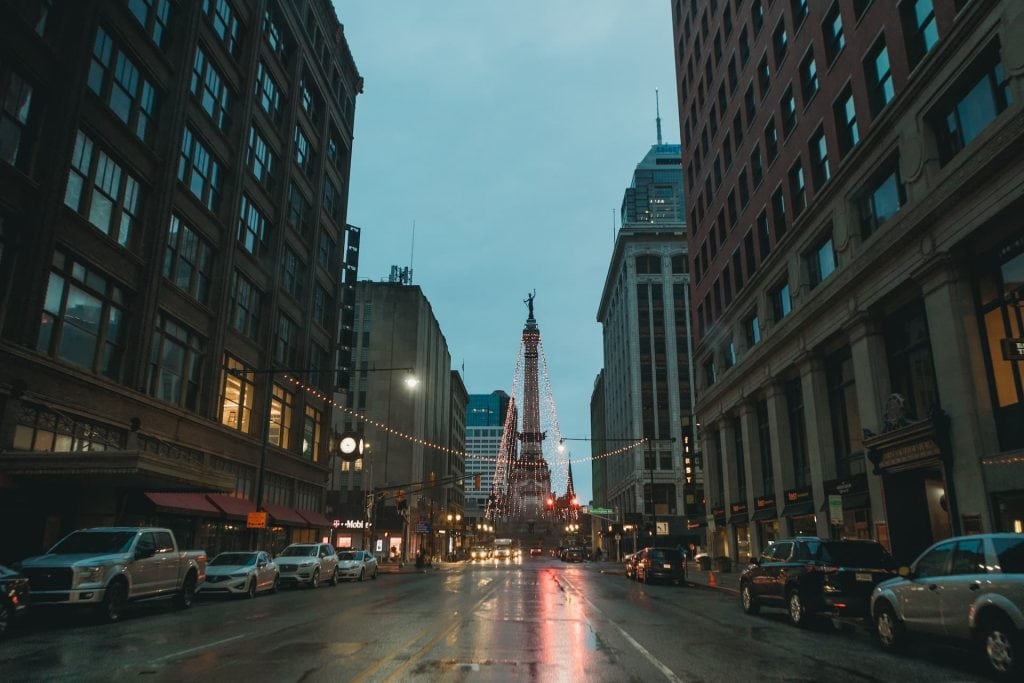
Additionally, public transportation in the city is not as well established as in some other major metropolitan areas.
While there are a few public transit options, including buses and a limited light rail system, many residents find it easier and more convenient to have a car for daily transportation. This is especially true if you live outside the city limits or must commute to work.
The Pinnacle of Midwest Traffic
As mentioned, Indianapolis is “Crossroads City”, meaning traffic congestion and gridlock are commonplace. With a growing population and increasing number of commuters, the city has struggled to keep up with the demands of its transportation system. This has led to longer commute times, more traffic accidents, and increased frustration for residents.
However, the city is implementing several initiatives to improve traffic flow and reduce congestion, such as adding new bike lanes and pedestrian walkways. But this is an ongoing process, so be prepared to sit in traffic and plan for daily commuting time.
Experience the Four Seasons
One of the unique aspects of living in Indianapolis is experiencing the four distinct seasons throughout the year. The city has a humid continental climate, with warm summers, cold winters, and mild spring and fall seasons.
While Indianapolis is not particularly prone to natural disasters, be prepared for the occasional severe weather event. Tornadoes, thunderstorms, and heavy snowfall are all possible during certain times of the year, so have emergency supplies and plan in case of an emergency.
The Sports Craze Is On
Indianapolis is one of the biggest sports cities, and numerous professional and collegiate sports teams call it home. The dynamic sports scene includes its annual hosting of major sporting events, such as the Indianapolis 500, the NCAA Final Four, and the Super Bowl. Top stadiums in Indianapolis include:
- Lucas Oil Stadium
- Kiesel Field at Key Stadium
- Roncalli Stadium – Bob Tully Field
Indianapolis is also home to several professional sports teams, including the Indianapolis Colts (NFL), the Indiana Pacers (NBA), the Indianapolis Indians (MLB), and Indy Eleven (USL).
There are also several successful collegiate sports programs, including the Butler Bulldogs and the Indiana Hoosiers. If you’re a sports fanatic, you’ll feel at home amongst the hundreds of thousands of sports fans gathering in the city every season.
The Indy 500
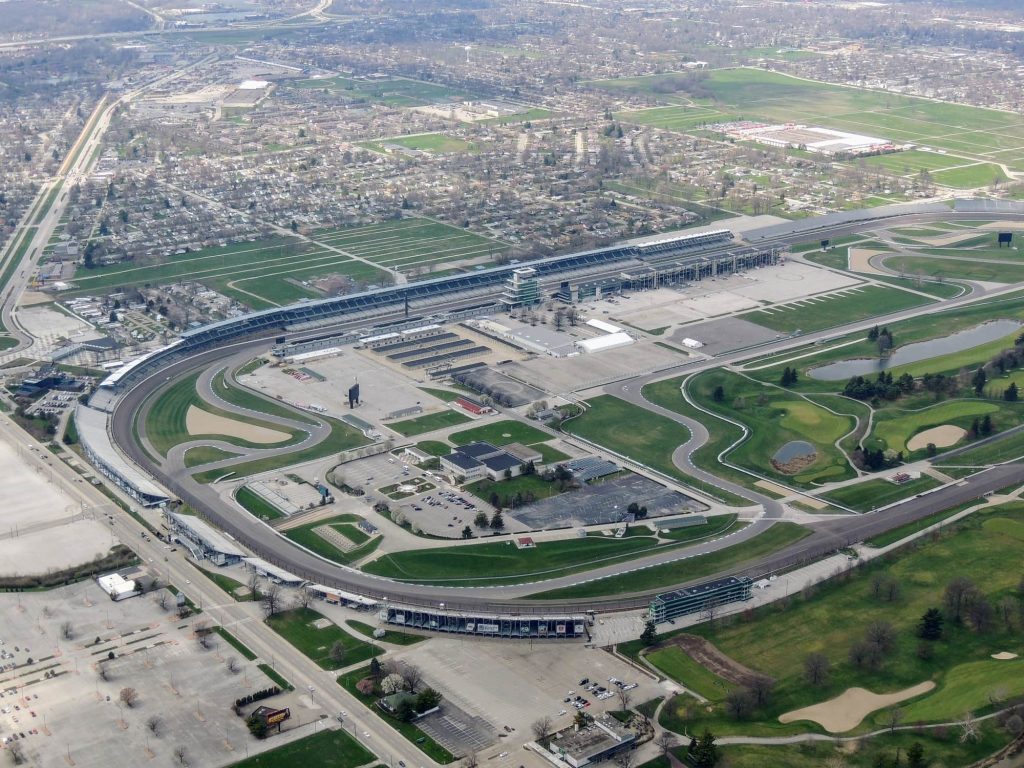
The Indy 500 is an annual motor racing event held at the Indianapolis Motor Speedway in Indianapolis, Indiana. It’s a unique and iconic event deeply intertwined with the culture and identity of Indianapolis.
The Indy 500 race takes place on the Sunday before Memorial Day and is part of the IndyCar Series, featuring high-speed open-wheel cars racing around a 2.5-mile oval track. It’s a must-see for car-racing enthusiasts.
Nickname City
Indianapolis has earned several nicknames over the years because of its rich and diverse history, each reflecting a different aspect of its character and identity.
These include “The Crossroads of America,” “Indy,” “The Circle City,” and “Naptown,” each of which is used affectionately by locals and visitors alike.
Underrated Food Scene
Although it may not be as well-known as other culinary destinations in the United States, Indianapolis has quietly developed a thriving food scene worthy of attention.
The city has gained a reputation for its unique blend of local and international flavors, and its commitment to sustainability and ethical sourcing. Whether in Fountain Square or Downtown Indianapolis, you’ll have numerous food options and coffee shops when living in the city.
The Flatlands
One of the defining characteristics of Indianapolis and the surrounding region is its flat terrain, often referred to as “The Flatlands.”
Unlike other parts of the country, characterized by mountains, hills, or valleys, Indianapolis and its surrounding areas are almost entirely devoid of significant elevation changes. This makes for beautiful grounds fantastic for running, walking, and biking.
A Big but Peaceful City
Indianapolis offers many amenities and opportunities of a larger city while maintaining that small-town feel. While Indianapolis has plenty to see and do and numerous cultural districts, it doesn’t have the same frenetic pace as other major metropolitan areas.
It also doesn’t have the same high crime rates. This makes it appealing to those who value a more relaxed way of life, or who are looking for a break from the hustle and bustle of larger cities.
Family-Friendly Environment
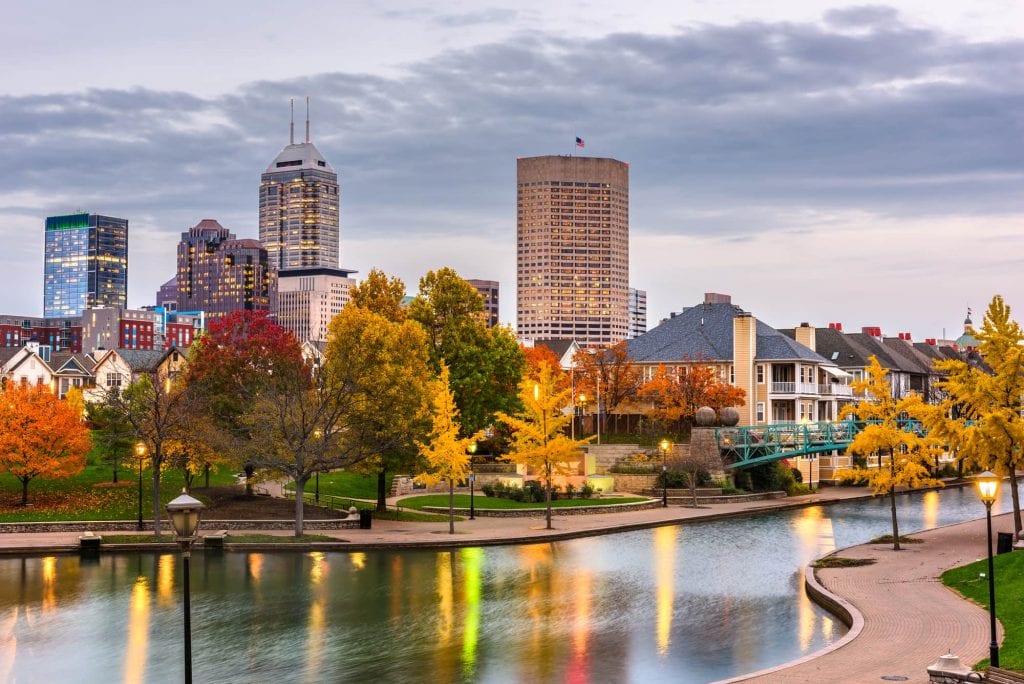
Indianapolis is a fantastic place to raise a family, with various family-friendly amenities and activities available. From parks and playgrounds to museums and cultural events, there is always something to do in Indianapolis suitable for kids and parents alike.
Additionally, the city has excellent public schools, which consistently rank among the best in the state. There is also a strong, caring community, which can help families feel more connected and supported.
Shopping Spree Paradise
Indianapolis is a shopping paradise, offering diverse options for shoppers of all interests and budgets, from small gift shops to massive malls.
The city has several large shopping centers, such as the Fashion Mall at Keystone and the Circle Centre Mall, which feature a mix of high-end designer brands, chain retailers, and local boutiques.
Several unique neighborhoods throughout the city offer a more specialized shopping experience, such as:
- Downtown Indy
- Broad Ripple Village
- The Mass Ave Arts District.
Festival City
Indianapolis is a festival lover’s paradise, with various festivals and events throughout the year.
Some of the most popular festivals are the Indy Pride Festival, Jazz Fest, Indy Music Fest, and Indiana State Fair, featuring carnival rides, live entertainment, Interactive Exhibits, and plenty of food and drink vendors.
There are also several beer and wine festivals throughout the year, featuring local breweries and wineries, with both national and international brands.
First Fridays
First Fridays is a unique and exciting monthly event in the Fountain Square neighborhood of Indianapolis. It brings together the community and celebrates local creativity and talent.
Along with the art exhibits, the event also features live music, food vendors, beers on tap, and other activities that create a lively and festive atmosphere.
War Memorial Monuments
There are several war memorial monuments in Indianapolis, including the War Memorial Plaza, American Legion Mall, Vietnam War Memorial, and USS Indianapolis Memorial, which honor the sailors who lost their lives when the ship sank during World War II. If you’re a war history buff, you’ll enjoy the city.
FAQ: Moving to Indianapolis
We’ve researched and answered some commonly asked questions about moving to Indianapolis to help you make an informed decision.
Is it worth moving to Indianapolis?
If you’re looking for an affordable city with extensive job growth, a family-friendly environment, and a vibrant cultural scene, Indianapolis is worth considering.
Is Indianapolis a desirable place to live?
Yes, Indianapolis is a desirable place to live, with a family-friendly environment, diverse economy, rich sports history, vibrant festival scene, and affordable cost of living.
What are the benefits of living in Indianapolis?
The benefits of living in Indianapolis include a family-friendly environment, diverse economy, rich sports history, vibrant festival scene, and affordable cost of living.
What is a livable salary in Indianapolis?
A livable salary in Indianapolis depends on various factors, but generally, a salary of $50,000 to $60,000 can provide a comfortable standard of living.
Why is Indianapolis called Naptown?
Indianapolis is called Naptown because it was once known for its quiet, laid-back atmosphere, and the nickname has stuck ever since.
What do you need to know before moving to Indiana?
Before moving to Indiana, research the cost of living, job market, schools, and transportation options. Indianapolis offers a family-friendly environment, a diverse economy, and rich sports history.
Does Indianapolis, Indiana get snow?
Yes, Indianapolis, Indiana, gets snow in the winter months, with an average snowfall of around 25 inches yearly.
What To Know Before Moving to Indianapolis: Final Word
Indianapolis has a lot to offer, including a diverse real estate market, a family-friendly environment, a rich sports history, and a vibrant festival scene. Its unique charm and character make it a great place to live, work, and visit.
If you’re considering a move to the Midwest, contact an Indianapolis real estate agent. A local real estate professional can help you navigate the complex world of property transactions. They can offer valuable insights into the local real estate market and help you make informed decisions about your investment.
